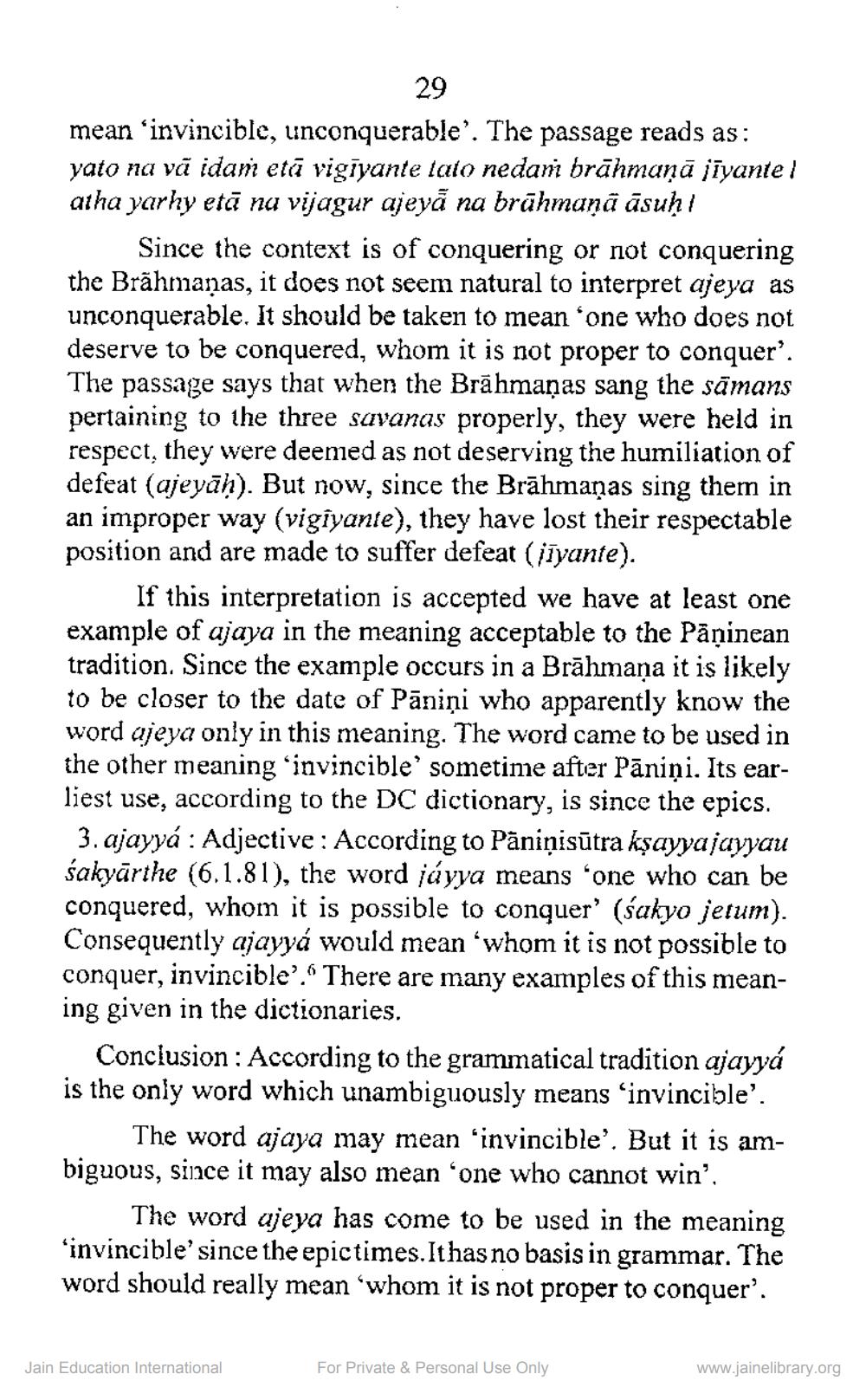________________
29 mean “invincible, unconquerable'. The passage reads as: yato na vā idam etā vigīyante lato nedan brāhmaṇā jīyante! atha yarhy etā na vijagur ajeyā na brāhmaṇā āsuh/
Since the context is of conquering or not conquering the Brāhmanas, it does not seem natural to interpret ajeya as unconquerable. It should be taken to mean 'one who does not deserve to be conquered, whom it is not proper to conquer'. The passage says that when the Brāhmaṇas sang the samans pertaining to the three savanas properly, they were held in respect, they were deemed as not deserving the humiliation of defeat (ajeyāḥ). But now, since the Brāhmaṇas sing them in an improper way (vigiyante), they have lost their respectable position and are made to suffer defeat (jīyante).
If this interpretation is accepted we have at least one example of ajaya in the meaning acceptable to the Pāṇinean tradition. Since the example occurs in a Brāhmaṇa it is likely to be closer to the date of Pāniņi who apparently know the word ajeya only in this meaning. The word came to be used in the other meaning 'invincible' sometime after Pāniņi. Its earliest use, according to the DC dictionary, is since the epics.
3. ajayya : Adjective: According to Pāniņisūtra kşayyajayyau sakyārthe (6.1.81), the word jáyya means 'one who can be conquered, whom it is possible to conquer' (sakyo jetum). Consequently ajayya would mean 'whom it is not possible to conquer, invincible?." There are many examples of this meaning given in the dictionaries.
Conclusion: According to the grammatical tradition ajayya is the only word which unambiguously means “invincible'.
The word ajaya may mean “invincible'. But it is ambiguous, since it may also mean ‘one who cannot win’.
The word ajeya has come to be used in the meaning ‘invincible'since the epictimes. It has no basis in grammar. The word should really mean ‘whom it is not proper to conquer'.
Jain Education International
For Private & Personal Use Only
www.jainelibrary.org




